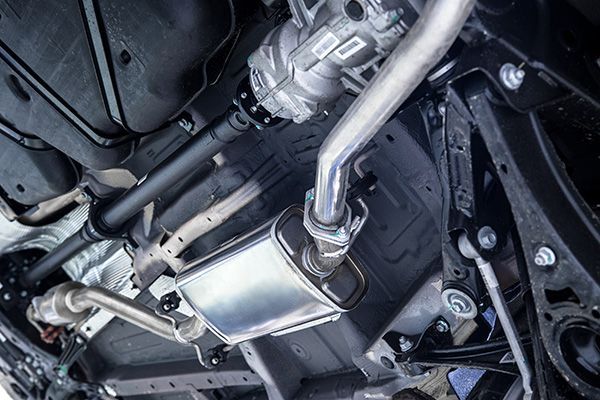The brakes in our car are often something we take for granted as drivers. We know that when we need to slow down or come to a stop, we can press on that little brake pedal and the vehicle will do what it's designed to do. Unfortunately, a lot of car owners ignore their brakes and let them get really worn out before finally doing something about it.
What Happens if Your Brakes Are Bad
If your brakes aren't working properly or the brake pads/rotors are getting too worn out, it can be cause for concern. Your vehicle won't handle right and you might find it difficult coming to a quick stop when you need to. That puts your safety at risk. You may also hear unpleasant sounds like screeches and squeals. Last but not least, you could be doing damage to other automotive components that are having to work harder to make up for weak brakes. This may include the wheels, tires, bearings, differential, suspension and transmission.
In other words, ignoring those worn-out brake pads can lead to some serious automotive issues and expensive repairs. That's why it's a good idea to get your brakes inspected regularly by a trained professional. If the brake pads are worn out, get them replaced. If the rotors are getting worn, then you may be due for a full brake service that will involve remachining or replacing the rotors.
What Does a Brake Inspection and Service Entail?
With a brake inspection, other things will also be looked at such as the hardware, brake line connections and the hydraulic brake fluid. If your vehicle has an anti-lock braking system (ABS) or other modern brake features, those settings can also be inspected and adjusted as needed. The goal is to make sure the brake components are in good health and that the brake system as a whole is doing its job.
Some mechanics will recommend a brake inspection with every oil change , while others might say it only needs to be done every 10,000 miles or so (which is about every other oil change in many vehicles). The key is to do it preventatively so that problems can be caught and addressed before they lead to bigger issues.
Signs of Brake Failure
Of course, if you are already noticing brake problems, then it's probably time to get them inspected. Here are a few common signs of brake failure you can look for:
• Screeching/squealing noises
• Brake pedal feels loose
• Brakes feel weak and car not stopping as quickly as usual
• ABS dashboard warning light
• One tire is wearing out a lot more quickly than others
• Brake fluid leaks
• Smoke or sparks coming from the wheels when you brake
For all your Colorado Springs brake inspection and repair needs, call LightHouse Automotive at (719) 465-0302 or schedule your automotive service appointment online. We can help keep your brakes healthy and keep your vehicle running right with any maintenance and repairs that you require.






.jpeg)



